Matcha, the vibrant green powdered tea, has taken the wellness world by storm. But as health-conscious consumers seek alternatives to coffee, a common question arises: does matcha have caffeine? Let's dive into the science behind this trendy beverage and uncover its caffeine content and unique properties.
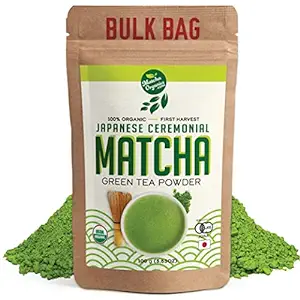
Key takeaways:
• Matcha contains 18.9-44.4 mg of caffeine per gram
• It offers more caffeine than regular green tea but less than coffee
• L-theanine in matcha provides a balanced, sustained energy boost
• Matcha's caffeine content can vary based on preparation methods
The caffeine content of matcha
Matcha is indeed a caffeinated beverage, but its caffeine profile is unique. According to a comprehensive review published in the journal Molecules, matcha typically contains between 18.9 and 44.4 milligrams of caffeine per gram of tea powder[1]. This range is higher than that of regular green tea, which contains about 11.3-24.67 mg/g[1].
However, the actual caffeine content in a cup of matcha can vary significantly depending on how it's prepared. A standard serving of matcha (usually 2-4 grams of powder) can provide anywhere from 38 to 176 mg of caffeine[2]. For comparison, an 8-ounce cup of coffee typically contains 95-200 mg of caffeine[3].
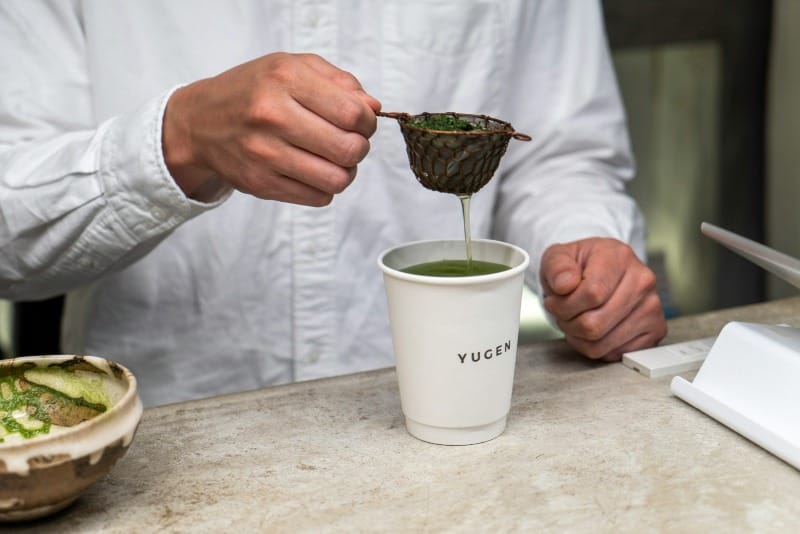
The matcha difference: L-theanine and caffeine synergy
What sets matcha apart from other caffeinated beverages is its high content of L-theanine, an amino acid that promotes relaxation without drowsiness. Research published in the Journal of Medicinal Food suggests that the combination of caffeine and L-theanine in matcha can provide a balanced, sustained energy boost without the jitters often associated with coffee[4].
Dr. Emma Derbyshire, a nutrition and biomedical scientist, explains: "The L-theanine in matcha can help to 'take the edge off' the caffeine, potentially reducing adverse effects such as anxiety and the post-caffeine crash"[5].
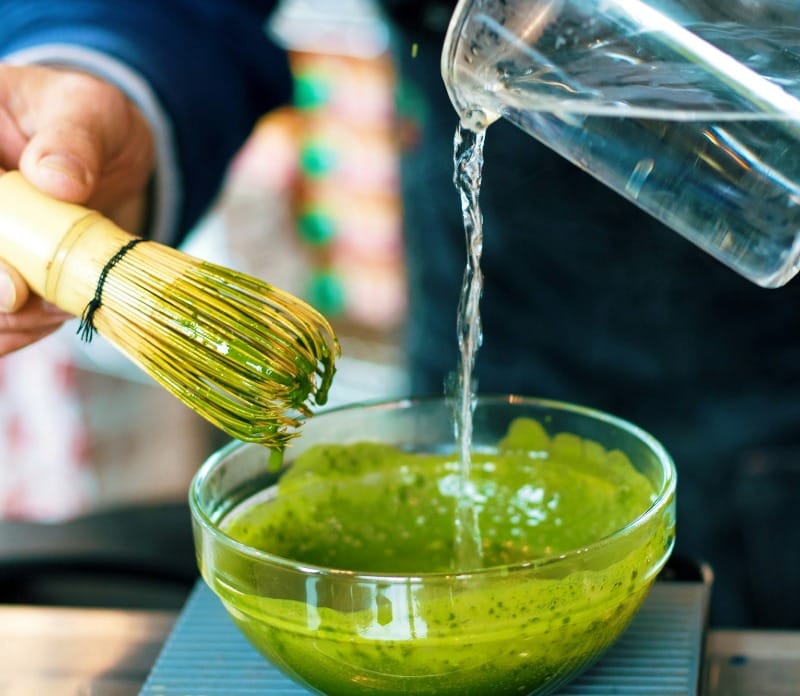
Factors affecting matcha's caffeine content
Several factors can influence the amount of caffeine in your matcha:
- Preparation method: The traditional whisking method typically extracts more caffeine than steeping matcha like regular tea.
- Water temperature: Hotter water tends to extract more caffeine.
- Serving size: Using more matcha powder will naturally increase the caffeine content.
- Quality and origin: Higher-grade matcha from the first harvest (first flush) usually contains more caffeine.
- Shade-growing period: Longer shading of tea plants before harvest can increase caffeine content.
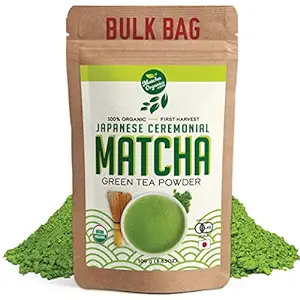
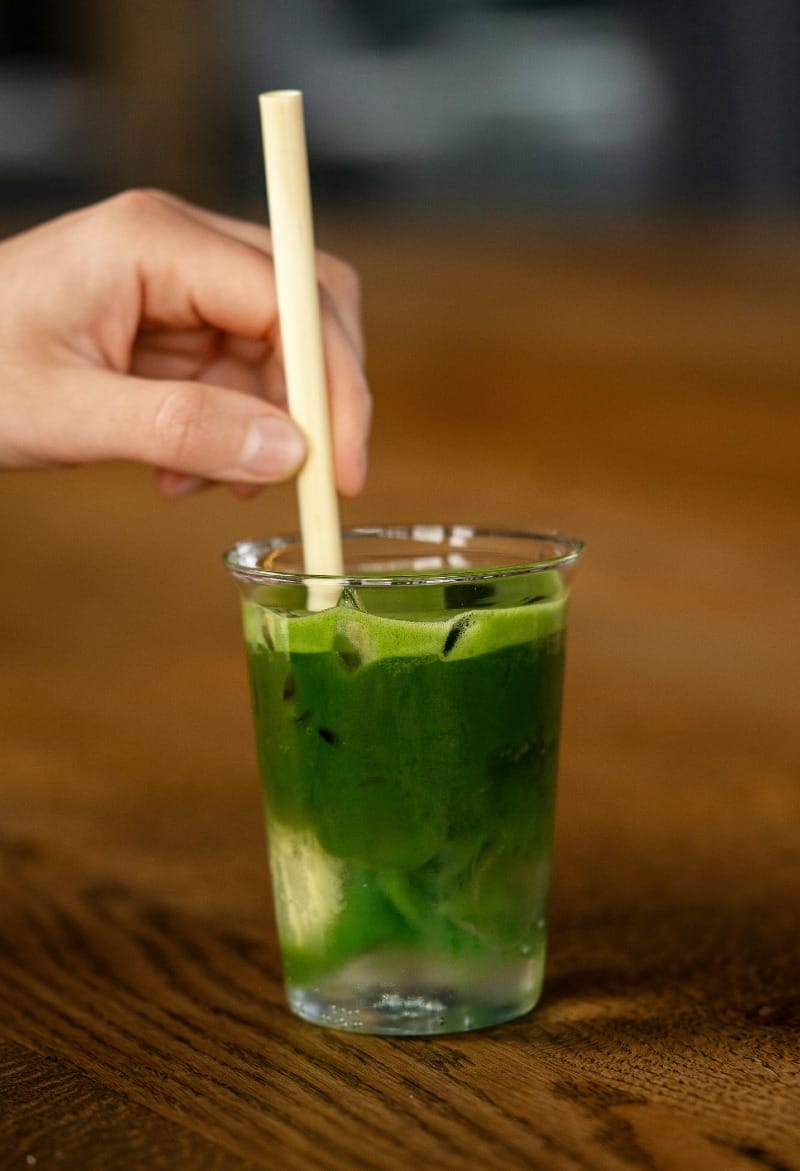
Health implications of matcha's caffeine content
While matcha does contain caffeine, its unique composition may offer some health benefits. A study published in the journal Nutrients found that the combination of caffeine and L-theanine in matcha improved attention, reaction time, and memory in a way that was distinct from the effects of caffeine alone[6].
However, it's important to note that individual responses to caffeine can vary. Dr. Derbyshire advises: "Those sensitive to caffeine or with certain health conditions should consult their healthcare provider before adding matcha to their diet regularly"[5].
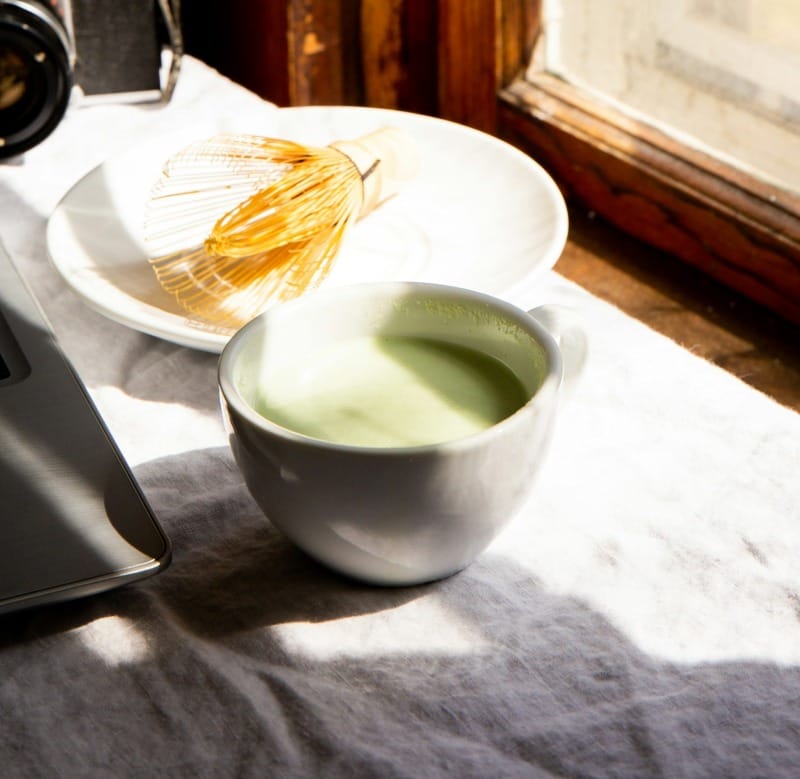
Matcha vs. other caffeinated beverages
To put matcha's caffeine content into perspective, let's compare it to other popular caffeinated drinks:
| Beverage (8 oz serving) | Caffeine Content |
|---|---|
| Matcha (2g powder) | 38-88 mg |
| Brewed coffee | 95-200 mg |
| Black tea | 14-70 mg |
| Green tea | 24-45 mg |
| Espresso (1 oz) | 47-75 mg |
As this comparison shows, matcha generally provides more caffeine than regular green or black tea but less than a typical cup of coffee.
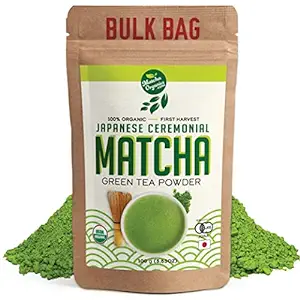
Conclusion:
So, does matcha have caffeine? The answer is a resounding yes, but with a twist. Matcha offers a unique caffeine experience, potentially providing a more balanced and sustained energy boost compared to other caffeinated beverages. Its combination of caffeine and L-theanine makes it an intriguing alternative for those looking to optimize their cognitive performance and energy levels.
As with any caffeinated product, moderation is key. While matcha can be a valuable addition to a healthy lifestyle, it's essential to be mindful of your overall caffeine intake and how it affects your individual physiology.
Interested in exploring the world of matcha and its potential benefits? Try incorporating a cup of high-quality matcha into your morning routine and observe how it affects your energy and focus throughout the day. Share your experiences with us in the comments below!
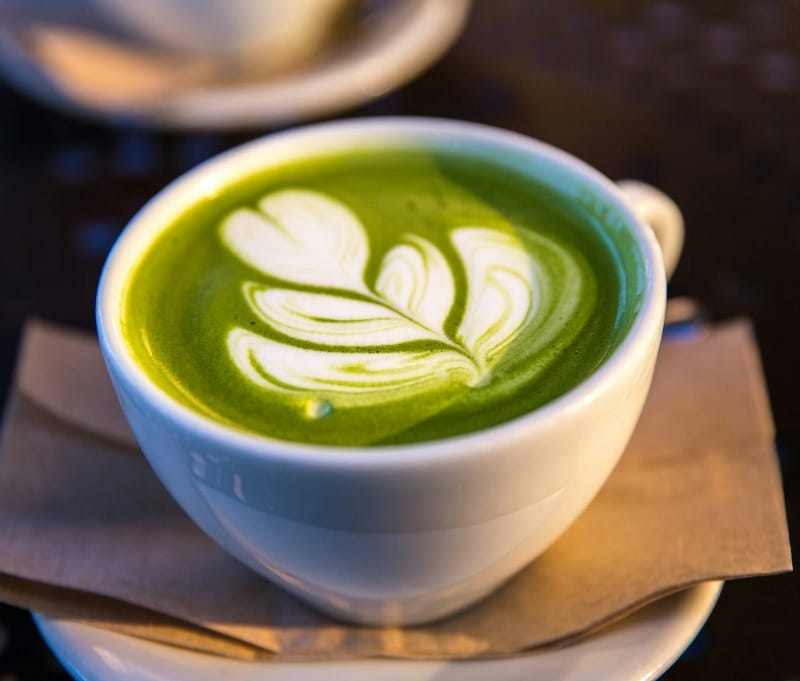
References:
[1] https://www.ncbi.nlm.nih.gov/pmc/articles/PMC6213777/
[2] https://pubmed.ncbi.nlm.nih.gov/29420994/
[3] https://www.fda.gov/consumers/consumer-updates/spilling-beans-how-much-caffeine-too-much
[4] https://pubmed.ncbi.nlm.nih.gov/17182482/
[5] https://www.nutrition-communications.com/blog/matcha-green-tea-caffeine-content/
Citations:
[1] https://www.ncbi.nlm.nih.gov/pmc/articles/PMC8156288/
[2] https://thatware.co/seo-services-matcha/
[4] https://www.ncbi.nlm.nih.gov/pmc/articles/PMC7796401/
[5] https://www.unicornseo.com/best-keywords-niche/Matcha
[6] https://www.storybase.com/blog/a-guide-to-keyword-research-with-storybase/
[7] https://www.medicalnewstoday.com/articles/does-matcha-have-caffeine


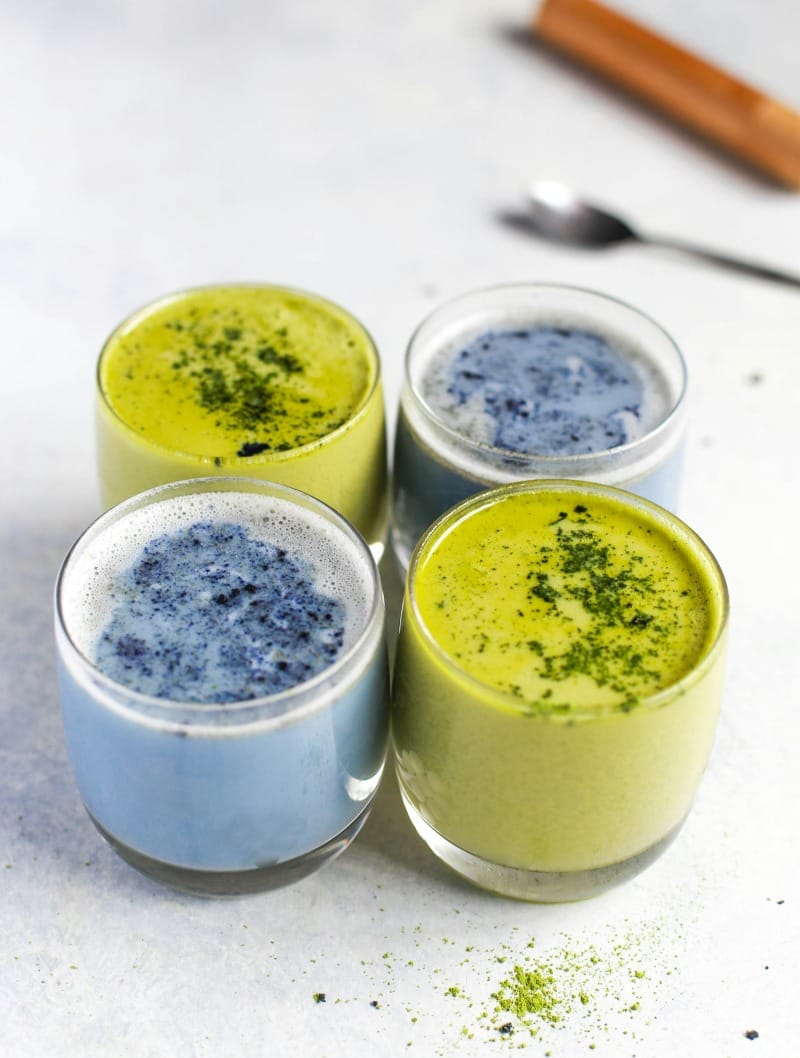











Member discussion